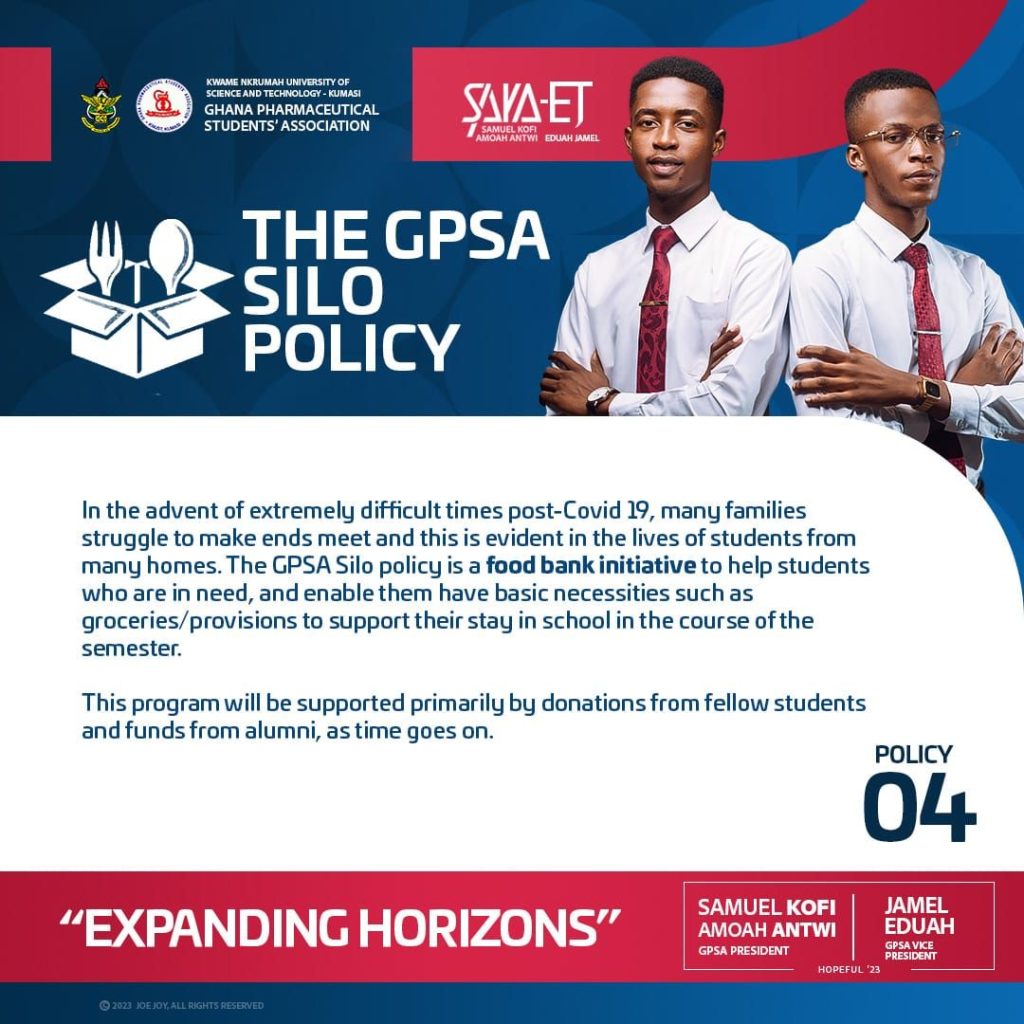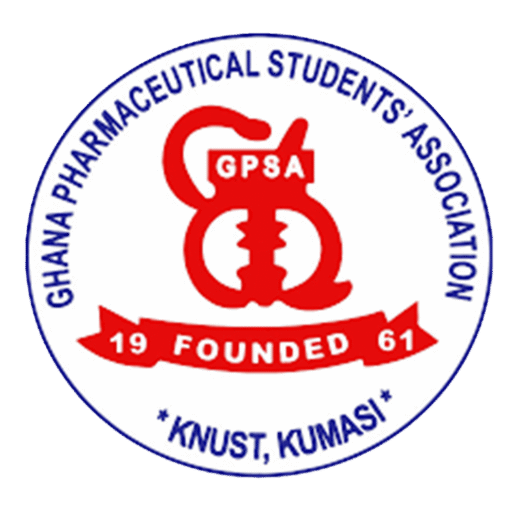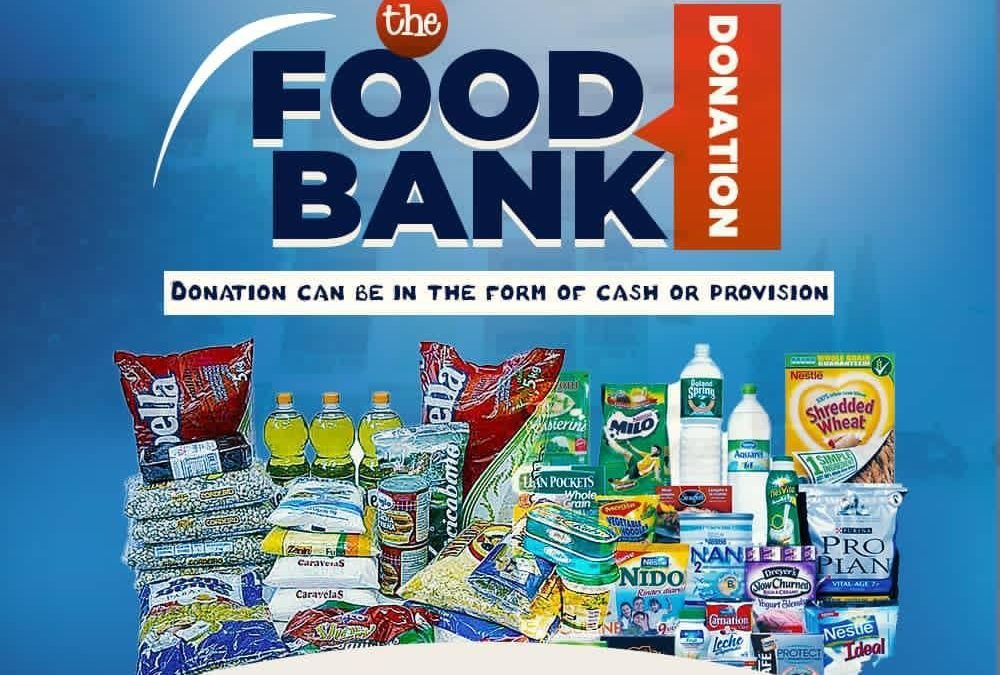In a significant move aimed at addressing student hunger, the Ghana Pharmaceutical Students Association, KNUST launched a food bank initiative, marking a notable step in the Association’s humanitarian efforts. Known as the “GPSA Silo Policy,” the project was introduced by the Antwi-Eduah administration with the objective of providing essential provisions to students in need, ensuring they have access to basic necessities throughout the semester.

The food bank was designed with a clear purpose: to support GPSA members struggling to afford groceries and other essentials. “The aim was simple,” shared the GPSA Vice President in an interview, “to support needy people of GPSA with foodstuff.” At a time when financial burdens and the cost of living weigh heavily on many students, this initiative sought to ease the strain of hunger that could detract from academic focus and success.
Unlike many charitable programs, the GPSA Silo Policy was implemented entirely by the association, without external partnerships. This self-sufficiency, however, presented a significant challenge, as donations fell short of the anticipated contributions. “Donations toward the project were low,” the Vice President noted, a limitation that forced the team to carefully allocate resources and stretch their provisions to meet demand.
Despite these constraints, the GPSA ensured that all distributions were carried out equitably. Following a rigorous vetting process, ten students were identified as the most in need, verified through background checks that provided the team with a clearer understanding of each applicant’s situation. Once selected, the recipients were given provisions in equal measure, guaranteeing a fair and transparent distribution process.
The provisions distributed mainly consisted of basic groceries—enough to make a tangible difference in the day-to-day lives of the students who received them. While this first run of the GPSA Silo Policy was modest in scale, it delivered a powerful impact for those involved. Students expressed their gratitude, commending the association for taking concrete action to support their peers during tough times.
“The feedback we received was mainly appreciation for the effort,” the Vice President added, underscoring the positive reception the project has garnered among GPSA members and beneficiaries alike.
As the GPSA looks ahead, there is hope that subsequent administrations will take up and continue this initiative, expanding its reach and securing more donations to help an even greater number of students. The Antwi-Eduah administration’s food bank policy stands was an inspiring example of student leadership and compassion in action—one that has already begun making a difference in the lives of colleague pharmacy students.
Reported by,
Yaa Otchere Tiwaah (Rx 27)

